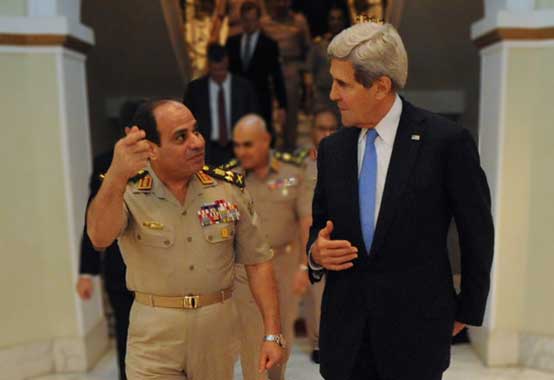No, There Isn’t a ‘New Cold War’ Between Democracy and Authoritarianism

Jack Goldstone tries to make the case that the U.S. and its allies are in a “new Cold War”:
Yet the closest similarity to the Cold War is that Western democracies again find themselves forced to argue for the value of universal human rights against heavily armed and confident major powers for whom democracy and human values are seen as threats to be defeated. Today the global advance of democracy is being countered by a multifaceted and aggressive strategy embracing proxy wars, propaganda and the new tools of cyberattacks, as well as domestic coercion.
There are several things wrong with this, but the most significant problems are that no major power is actively seeking to roll back “the global advance of democracy” and there is no concerted effort among various authoritarian states to export their form of government elsewhere. Even if such things were happening, I don’t think that would constitute a “new Cold War” because the ability of the authoritarian major powers to project power around the world is significantly less than that of the Soviet Union, but those things aren’t happening. What we see instead is a series of limited, largely reactive moves by authoritarian states against perceived threats to themselves or their clients.
Goldstone cites Freedom House’s findings on the global decline of freedom, but this is the result of increased repression by existing authoritarian governments and the emergence of popularly-backed illiberal elected governments. Authoritarian governments are trying to increase their control within their own borders, but they don’t aspire to much more than that. Goldstone says that “the West is losing the battle,” but it’s not obvious that this has had much of an effect on international affairs. For the most part, the consolidation of authoritarian and military regimes (e.g., Egypt, Thailand) and the development of illiberal one-party states (e.g., Hungary, Turkey) are taking place in countries that are more or less aligned with the U.S. It would be bizarre to treat such states as being on the other “side” of a “new Cold War” when the U.S. routinely worked with authoritarian regimes during the actual Cold War. Some of these governments are friendlier with Russia than their predecessors, but they aren’t allied with Russia and they aren’t going to be. Their interests still often conflict with the interests of the major authoritarian powers, and they aren’t becoming satellites of some authoritarian international, because no such thing exists. More to the point, these states have no design to overthrow other elected governments or subjugate other countries by force. If this is a “new Cold War,” it isn’t all that threatening.
The “new Cold War” framing isn’t illuminating or helpful in understanding these developments, but it does create a justification for increased U.S. meddling in the affairs of other countries. At best, it might motivate our government to be more critical of its allies’ and clients’ domestic abuses, but it is far more likely that thinking of these problems in terms of a “Cold War” will have just the opposite effect: allies and clients’ backsliding and illiberalism will be overlooked and excused to keep them “on side” against the vastly exaggerated authoritarian menace.
Comments